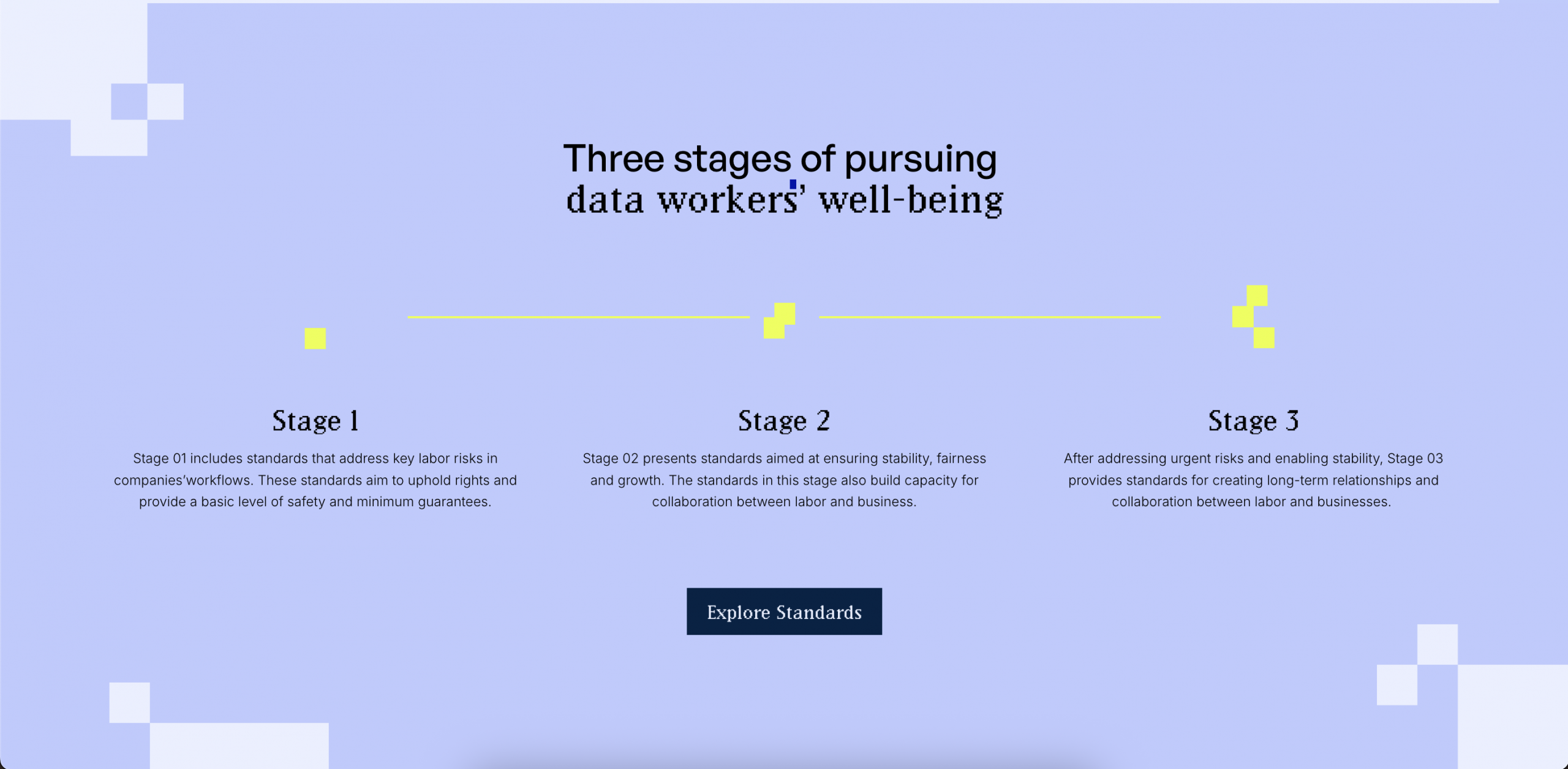
In recent years, there has been an emergence of research, advocacy, and calls to action on issues faced by data workers in the AI value chains. Workers have moved to both describe their problems and experience, as well as seek change. Researchers and journalists have also contributed to the discussions on data work. At Aapti Institute, we hope to add to these important efforts, and have developed a code of conduct that outlines key actions for businesses. This document offers guidance on how AI data solutions firms can implement safe and viable roles in several key aspects of data work arrangements.
In 2024, Aapti Institute and Karya initiated a research project on building labour standards for data workers’ working conditions and well-being. To directly understand the data work ecosystem, we conducted interviews and discussions with data workers, engaging with businesses and practitioners focusing on data work. We complemented these interactions with secondary sources like research, media reporting, workers’ discussions, and other publicly accessible resources. The two streams of examination helped us build an understanding of key problems data workers face, based on which we developed the code of conduct.
The code of conduct’s standards provide requirements on how businesses should treat data workers across a number of key themes, such as contracts, pay, and hazard-related support. These requirements are presented in a staggered approach, across three stages, each stage representing a broad form of change organizations should pursue for their data workers’ welfare. We also outline a series of values that signifies the data workers’ wellbeing and can be used as a guide by the companies while deliberating standards beyond the code of conduct. It is our hope that the code of conduct can act as a prototype for better data work arrangements, and as a benchmark for business conduct in AI supply chains.
You can find the code of conduct microsite here.
With the code of conduct released, one essential area of further research is understanding such standards’ feasibility for businesses’ adoption and implementation. Labour and research must work with businesses to find ways to adopt, and even refine, such guidance. We would love to receive feedback and questions for the code of conduct, and have conversations with businesses on its adoption and use. If you would like to discuss the code of conduct, or broader issues of digital labour, please reach out to us via email at [email protected].


